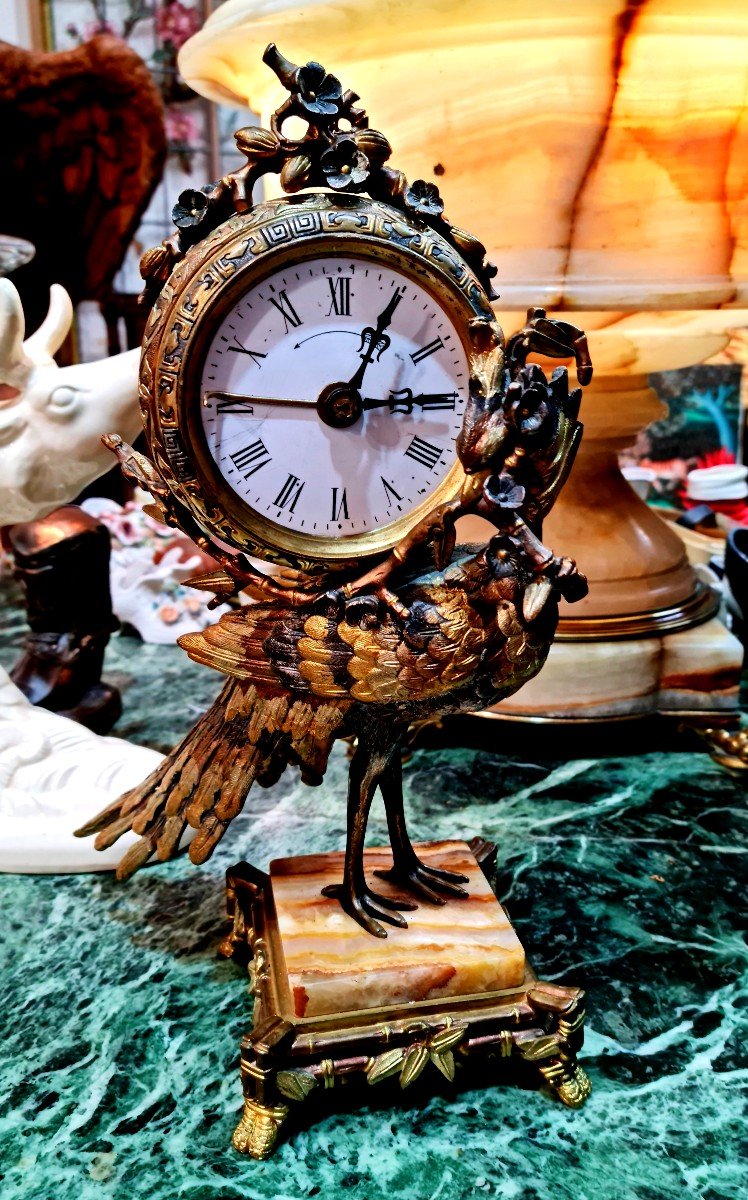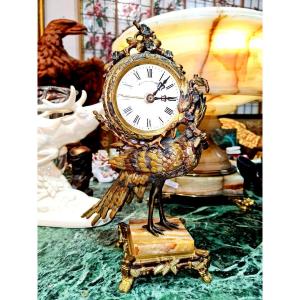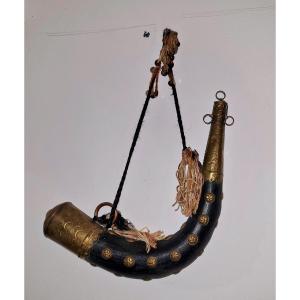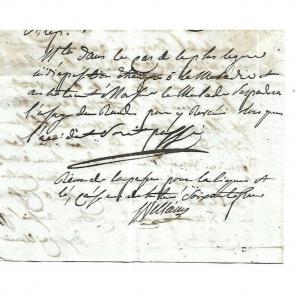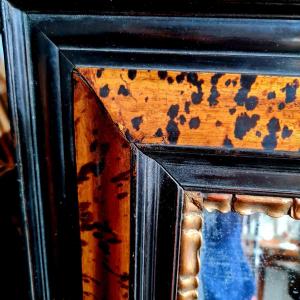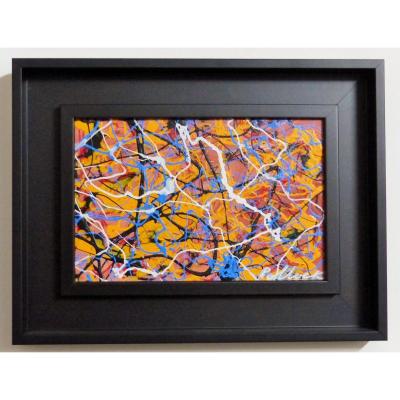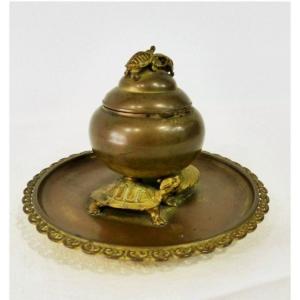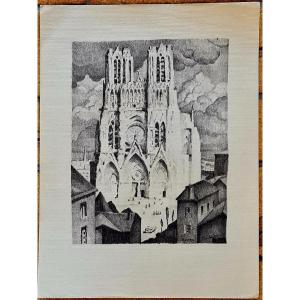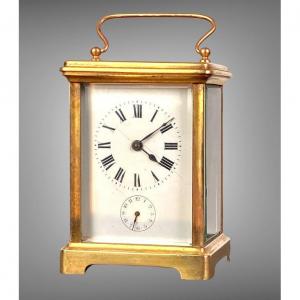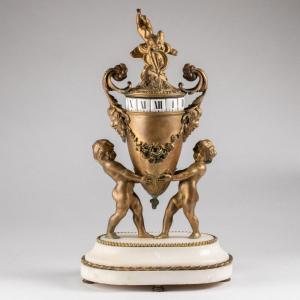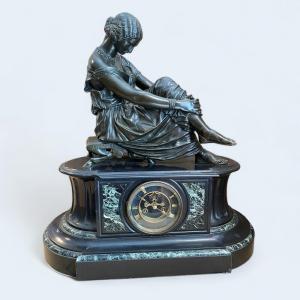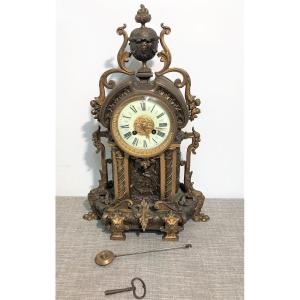Rare Pendulum, Japanese-style
Artist: E. Cornu Dessinateur & Sculpteur (1827-1899) G. Viot Et Cie Compagnie Des Marbres Onyx D’algérie (actif 2nde Moitié Du Xixe Siècle)
Rare pendulum, Japanese style "Mokume" clock in gilded and silvered bronze circa 1865 - 1870 Eugéne Cornu and Gustave Viot & CIE Works movement with programmable ringtone The sculptor Eugène Cornu (1827-1899), based at 29 rue Popincourt in Paris, worked first of all as draftsman and director of the works of the Tahan house, before working from 1858, in close collaboration with the Compagnie des Marbres Onyx d'Algérie, directed by Gustave Viot, successor of Alphonse Pallu. They executed decorative works of great luxury having the particularity of associating onyx with bronze, and sometimes enamel. They thus presented at the Universal Exhibition in Paris in 1867, an impressive pair of vases in onyx, bronze and enamel (signed "G. Viot et Cie, Exposition de 1867, Eugène Cornu Inventeur"; Official Catalog of the Exhibition, group III, class XIV, "luxury furniture", n°65) which, admired by the jury, brought them a gold medal (Reports of the International Jury, Universal Exhibition of 1867 in Paris, 1868, t. III, group III, class XV, chapter II, § 2, p°45 & 46). Around 1873 Eugène Cornu became the director of the Company which then took the name of Société des Onyx d'Algérie E. Cornu et Cie. Established in Paris, at 24 boulevard des Italiens in the 1850s, the company G. Viot et Cie, or Compagnie des Marbres Onyx d'Algérie, in reference to the onyx mines it operated in the Oran region, was specialized in the production of luxury decorative objects in onyx and bronze. Onyx, although known since antiquity, was not rediscovered until 1849 in Algeria by Delmonte, then truly exploited by Alphonse Pallu at the end of the 1850s. The works of the Viot house were created from models of renowned sculptors, such as Eugène Cornu, Albert Carrier-Belleuse (Victoria & Albert Museum, Inv. 9070-1863), Charles Cordier (Orsay, Inv. RF 2996) or Louis-Ernest Barrias (Orsay, Inv. RF 1409), worth the honors and rewards by the juries of the events in which it participated: such as the Universal Exhibition in Paris in 1867, where the Viot house received the gold medal in the luxury furniture section. Around 1878, the company was then managed by H. Journet, whose name it took.
8 500 €
Period: 19th century
Style: Napoleon 3rd
Condition: Bon etat fonctionne mouvement révisé
Width: 17 cms
Height: 32 cms
Reference (ID): 907467
Availability: In stock
Print


